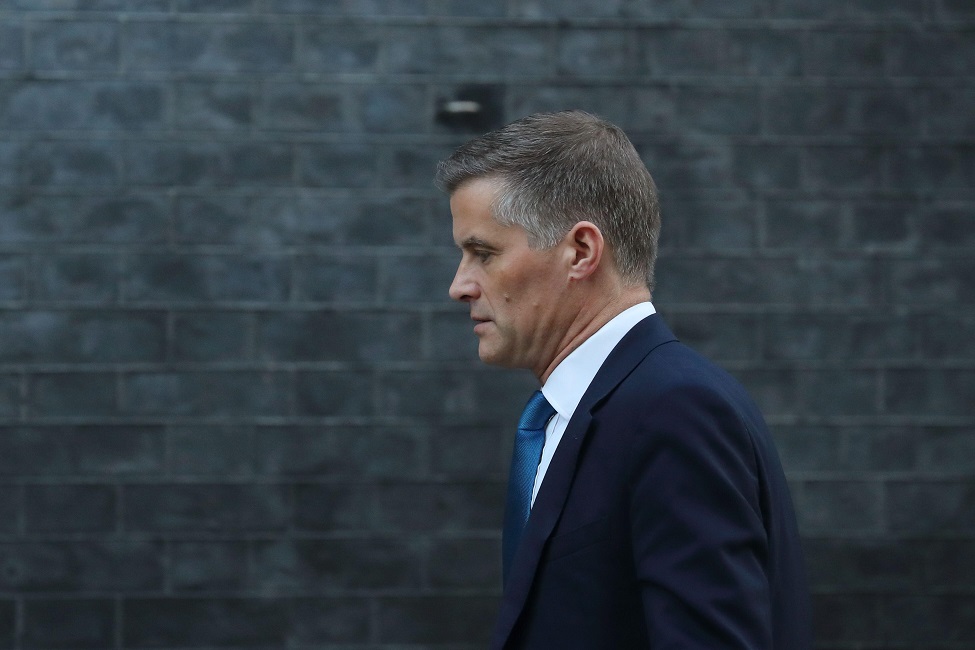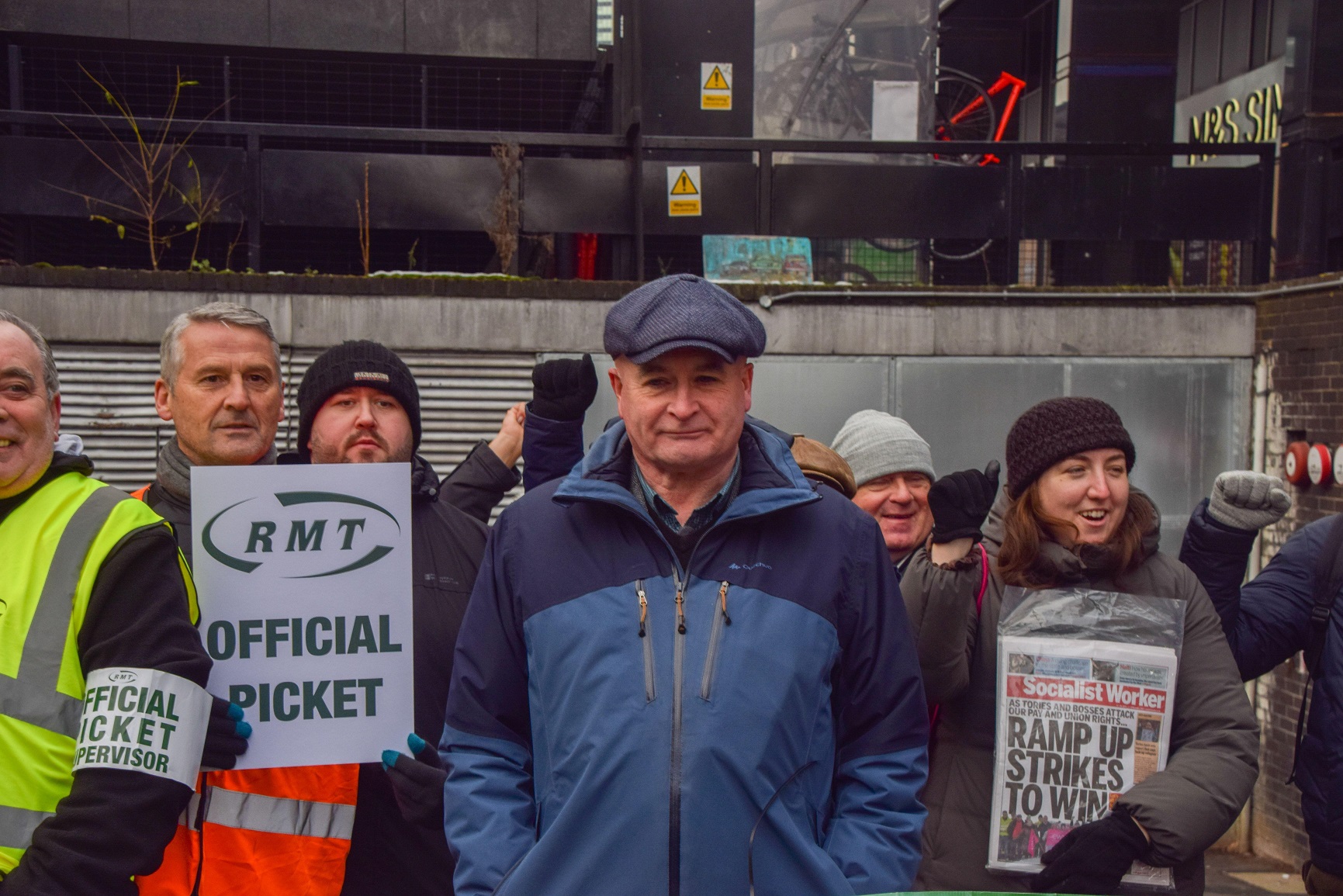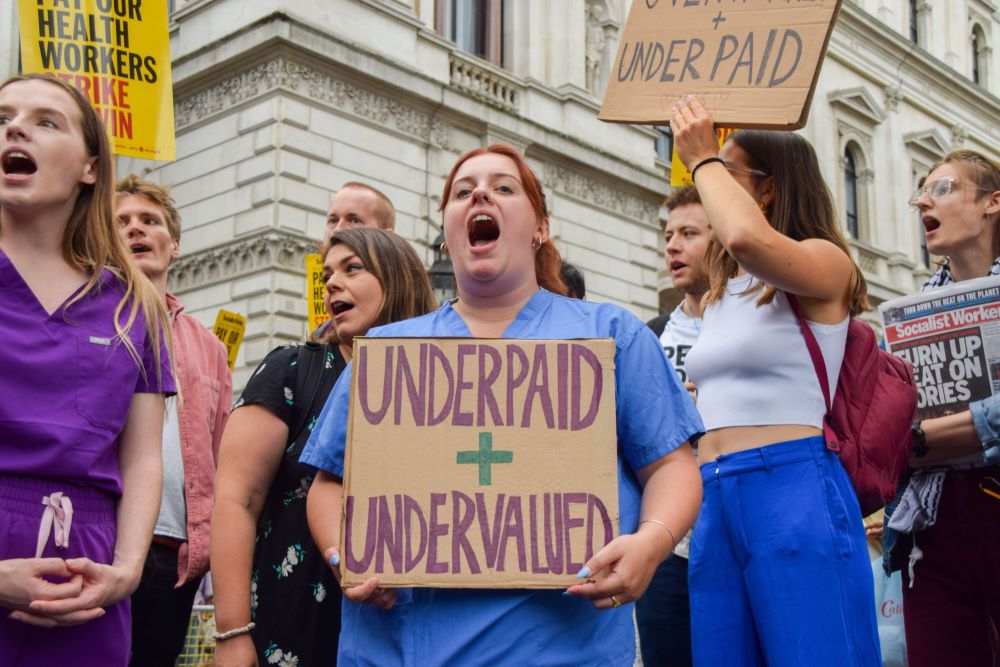Mortgages To Rise By £3,000 A Year, Government Says “Tide Is Turning” Against Unions, No 10 Accused Of Blocking Strikes Deal
5 min read
Around four million households on fixed-rate mortgages could see their payments increase by £3,000 across 2023, the Bank of England has warned.
The Bank said households will see an increased pressure on household finances across 2023 due to falling real incomes, higher mortgage costs and higher unemployment.
It found that people with fixed-rate mortgages which would expire next year would see their monthly payments rise by around £250 on average, equating to £3,000 across the year.
The report from the Bank’s Financial Policy Committee (FPC) also warned that households are struggling to keep up with payments on other kinds of debt such as credit cards and personal loans, and that “the risk that indebted households default on loans, or sharply reduce their spending, has increased”.
“Some mortgagors also have very low levels of savings, which means these households will only have a limited cushion against further shocks to their real incomes,” the report said.
“Within the mortgagor population, those adversely affected by rate rises are typically younger, have lower incomes, and are the most leveraged.”
Bank of England governor Andrew Bailey said on Tuesday morning that “household and business finances are under greater strain” next year, but stressed many were in a better position than in the aftermath of the 2008 financial crisis.
“There is nothing easy about the situation we face at the moment,” he continued.
“Four million households in this country are exposed to rate rises over the next year, and that’s a very substantial number.”
Transport secretary says “tide is turning” against unions over strikes
 (Alamy)
(Alamy)
Transport Secretary Mark Harper has said the RMT union should “look again” at the pay offer for workers, as he warned the “tide is turning” against them.
He told GB News: "We have been very clear, when I took this job I was very clear I wanted to do my part in trying to make sure we could get a fair and reasonable offer that has been put forward and that is exactly what has happened.
Harper pointed out that members of the Unite and TSSA unions had already recommended their members accept the offer, and that almost 40 per cent of RMT members had voted in favour of taking the deal.
“I think the tide is turning on people seeing that the offers we have made are reasonable, taking into account both the travelling public but also the interests of taxpayers,” he added.
The transport secretary went on to say the government will not "blink first" when it comes to resolving public sector pay disputes, and that he had to be “mindful of the interests of the wider public and the taxpayer”.
“I think people will think it is reasonable, they will think the government is both wanting to resolve the dispute but also looking out for the interests of the wider taxpayer who is having to pay for these deals and I think people will think the government has got the balance right,” he said.
Mick Lynch accuses government of “blowing up” hope of unions deal
 (Alamy)
(Alamy)
Mick Lynch, the general secretary of the RMT union, has claimed Downing Street is “deliberately obstructing” hopes of a pay deal to avert strikes.
He told BBC Breakfast: "The art of negotiation is getting to a position where both sides can accept a deal and the government, the [Department for Transport] and I think all the way up to No 10 has put conditions on the train operating companies they know that will blow up any chance of a deal."
He warned that further strikes were likely in the education sector and among firefighters due to the government’s position.
“They are obstructing these deals because they want to keep wages lowered and they want to strip out terms and conditions of many people."
He said the proposed pay deal was “not generous” as it is “way below inflation” and involves “conditions changes on our members in Network Rail that are entirely unacceptable”.
"It is also predicated on shutting every booking office in Britain and bringing in driver-only operation that they know we will never accept,” Lynch added.
Strike action hits highest level in over a decade, says ONS
 (Alamy)
(Alamy)
The UK recorded the highest level of strike action since 2011 in October, according to the Office for National Statistics (ONS).
Around 417,000 working days were lost because of strikes in October, the highest since November 2011.
The previous record took place at the height of austerity, when almost a million days were lost during strikes over cuts to public sector pensions brought in under David Cameron.
It’s expected that a million days could be lost in this month, as unions stage a wave of strikes across multiple sectors, which could make it the worst month for disruption in over 30 years.
The ONS ceased collecting data on strikes during the pandemic, but has logged 1.2 million lost days since it resumed data collection in June this year.
Separate data from the ONS also revealed that public sector pay is still trailing behind the private sector. Between August and October, public sector wages rose at an annual pace of 2.7 per cent, while the private sector saw an average increase of 6.9 per cent.
"This is the largest growth rate seen for the private sector and is among the largest differences between the private sector and public sector growth rates we have seen,” the ONS said.
